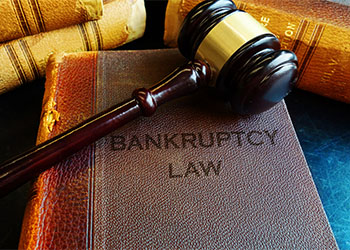What Not to Do Before Filing For Bankruptcy
April 7, 2023
 If your debts have gotten out of hand and you’re struggling to keep up with the monthly payments – perhaps you pay just the minimum, skip some and pay others, or even pay less than the minimum – know that you're not alone. And you have options to pursue financial security.
If your debts have gotten out of hand and you’re struggling to keep up with the monthly payments – perhaps you pay just the minimum, skip some and pay others, or even pay less than the minimum – know that you're not alone. And you have options to pursue financial security.
Perhaps it’s time to consider bankruptcy. Despite common misconceptions, filing for bankruptcy does not mean you’ll lose everything. There are exemptions built into the bankruptcy code and, depending on the chapter you choose to file under, you may be able to pay off your substantial debts within three to five years.
If you’re seeking financial relief, it’s important to equip yourself with knowledge before making any major decisions. If you’re located in New Jersey, contact our bankruptcy attorneys at Schwartz, Hanna, Olsen, & Taus, P.C. Our firm has been serving our community for over six decades, and we have helped countless clients secure a fresh financial start.
What Not to Do Before Filing Bankruptcy
There are legal steps to take to file for bankruptcy, which include filling out a petition and submitting copies of your taxes and credit reports. However, what you do before you file can have a profound effect not only on your bankruptcy but also on your personal finances. The following discusses some things to NOT DO before filing for bankruptcy.
Don’t Use Your Retirement Account to Pay Debt
Your debts are either going to be rearranged at a more affordable level or wiped out completely when you file for bankruptcy, your unsecured obligations, that is. Secured debts will have to be handled differently. But the point is, if you draw funds from your retirement account, there will be no way to get those assets back. The advisable option would be to stop paying your unsecured obligations and file for bankruptcy instead. The court will issue you what is called the automatic stay, which prevents creditors and bill collectors from contacting you or attempting to seize any of your assets.
Don’t Acquire New Debt
If you go on a spending spree to exhaust what little credit you have left, that can be a red flag to the bankruptcy court, which can lead to them refusing to cover those debts in your filing. What you bought may also be subject to seizure and sale depending on the type of bankruptcy protection you’re seeking. As a general principle, you should not use any credit within 90 days of filing.
Don’t Move or Hide Assets
Some filers will try to move or hide assets so the court and creditors can’t touch them. For instance, someone may “give” or sell at a low price an automobile to a son or daughter, or even to a friend, in hopes of hiding it. The scheme is that after the bankruptcy is over, the filer will “buy” it back. If the court suspects you of hiding assets, they can throw out your whole petition, or in worst-case scenarios, the U.S. Department of Justice may charge you with bankruptcy fraud.
Don’t Skip Filing Your Taxes
If you have past-due taxes, that can prevent your petition from going through until you settle with the state or the IRS. Bankruptcy cannot be used to wipe out tax obligations.
Don’t Misrepresent Anything on Your Petition
Your financial records are vital to the bankruptcy process. Your transactions must be reported on your petition for up to 10 years looking back. If you try to misrepresent your income and transactions, this can lead to the court voiding your petition, or in the case of fraud, can even result in criminal liability.
Don’t File Without Legal Guidance
An experienced bankruptcy attorney can assess your financial situation and advise you on which type of filing you should make. A lot will depend on your income. If you have disposable income after paying for life essentials, then a Chapter 13 reorganization might be in order. But if your income is below a certain threshold, calculated based on the size of your household, you might opt for a Chapter 7 liquidation plan. In either type of filing, it's in your best interest to consult with your attorney on how to retain property and assets that you need going forward.
Financial Relief Is Within Your Reach
Dealing with collection calls, emails, and text messages can be extremely stressful, and worrying about how to move forward with any financial certainty can be overwhelming. When debts get out of hand, don't hesitate to seek trusted bankruptcy legal counsel.
If you’re located in the New Jersey communities of Somerset, Morris, Passaic, Essex and Bergen Counties, or anywhere else in the state, contact the bankruptcy attorneys at Schwartz, Hanna, Olsen, & Taus, P.C. to schedule a free consultation. We’ll provide you with one-on-one personalized service, so you can pursue the fresh start you deserve.
